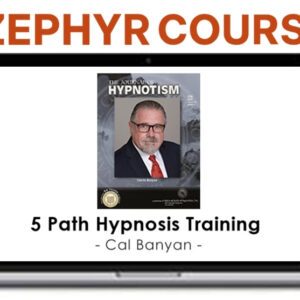Description
The Foundations of Mental Alchemy
While ancient alchemists sought to transform base metals into gold, the true roots of mental alchemy lie in shifting your thoughts and perceptions. You don’t need mysterious potions; instead, you harness your mind’s power to create mental transformation.
The foundations of mental alchemy begin with awareness—recognizing how your beliefs shape your reality. By observing your thoughts without judgment, you start to see patterns that either support or hinder you.
Practicing this awareness leads directly to inner mastery, as you gain control over reactions and emotions instead of letting them control you. As you develop this skill, you’ll notice an increased ability to respond rather than react, making intentional choices.
Ultimately, mastering these basics lays the groundwork for deeper changes within yourself.
Transforming Thought Patterns for Personal Growth
Once you recognize the influence your thoughts have on your reality, you can begin to reshape them for meaningful personal growth.
By paying attention to your inner dialogue, you’ll notice patterns that either support or hinder your progress. To initiate mindset shifts, start questioning the validity of limiting beliefs and replace them with empowering ones.
This process isn’t about ignoring challenges but reframing your perspective to see possibilities rather than obstacles. Cognitive transformation occurs when you actively choose thoughts that align with your goals, rather than defaulting to old habits.
Over time, you’ll notice greater resilience and adaptability. Consistent practice—like journaling or meditation—helps reinforce these shifts.
Applying Alchemical Principles to Everyday Challenges
Although life often presents hurdles both big and small, you can harness alchemical principles to transform these challenges into opportunities for growth.
Start by recognizing that every obstacle holds the potential for a mindset shift—an essential element of mental alchemy. Instead of reacting impulsively, pause and reframe the situation. Ask yourself what you can learn or how you might benefit from this experience. By doing so, you’ll move from resistance to acceptance, revealing new perspectives.
For practical applications, adopt daily habits like journaling your responses to setbacks or practicing gratitude during difficult moments. These small acts reinforce your ability to turn adversity into strength.
Frequently Asked Questions
Who Is Arash Dibazar and What Is His Background in Mental Alchemy?
You’re curious about Arash Dibazar, a transformational coach whose journey explores Alchemical Philosophy. He’s combined martial arts, psychology, and Eastern wisdom to teach you how to reshape your mind and master life’s challenges through mental alchemy.
Are There Prerequisites to Understanding or Practicing Mental Alchemy?
To understand or practice mental alchemy, you’ll need mental readiness and some foundational knowledge of self-awareness and basic psychology. You don’t need advanced training, but embracing an open mindset and willingness to learn helps you progress effectively.
How Long Does It Take to Notice Results From Practicing Mental Alchemy?
You’ll notice changes in your mindset within a few weeks if you commit to regular mental alchemy practice. The results timeline depends on your practice consistency—stick with it daily, and you’ll see progress sooner rather than later.
Can Mental Alchemy Techniques Be Combined With Other Self-Development Systems?
You can absolutely combine mental alchemy techniques with other self-development systems. Mental alchemy integration creates self development synergy, letting you enhance your growth by blending different methods, philosophies, or tools for more thorough, personalized transformation and progress.
Is There Scientific Evidence Supporting the Effectiveness of Mental Alchemy?
You won’t find many scientific studies directly proving mental alchemy’s effectiveness. However, some research on mental transformation techniques—like cognitive reframing—suggests you can change thought patterns, but results depend on your commitment and consistent practice.








